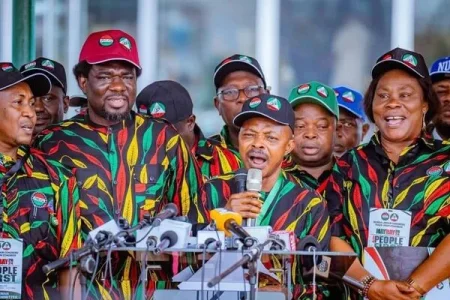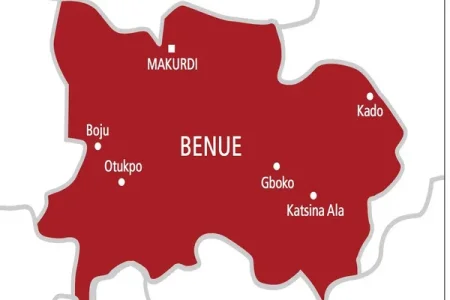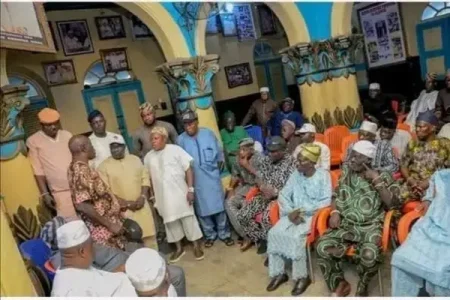
The Nigeria Labour Congress says the nationwide strike continues despite an agreement with the government on a new minimum wage above N60,000. Mixed signals and an NLC meeting today will determine if the industrial action is suspended.
Despite agreeing with the federal government on a new national minimum wage "above N60,000," the Nigeria Labour Congress (NLC) said on Tuesday that the nationwide strike that has paralyzed government and commercial activities will enter its second day. The mixed signals raised questions about whether the industrial action, which began on June 3 over wage and electricity tariff demands, would be resolved soon.
On Monday night, after a meeting between government representatives and organized labor leaders, a statement was issued saying the tripartite committee would meet daily for a week to determine an "agreeable National Minimum Wage" higher than N60,000. The government also committed that "no worker would be victimized as a result of the industrial action."
However, in a post on the social media platform X, the NLC announced on Tuesday: "Until we hear from Our Organs at our Meeting scheduled for today 4th June, We are still on Strike. Until we get Consent from our NEC meeting, We are still on strike."
The mixed messaging has sowed confusion and dashed hopes for an immediate end to the strike that has disrupted health services, power supply, legislative operations, air travel, and other economic activities nationwide. The work stoppage has impacted millions of Nigerians.
The strike was called by labor groups demanding the implementation a new N30,000 minimum wage and reversing a recent hike in electricity tariffs for residential customers. The government had long resisted meeting labor's demands, citing economic pressures.
With the strike heading into a second day despite the announced deal, all eyes are on the NLC's meeting today and whether the new wage offer will be enough for unions to suspend the industrial action. Any continued deadlock risks escalating economic and political tensions in Africa's largest economy.




